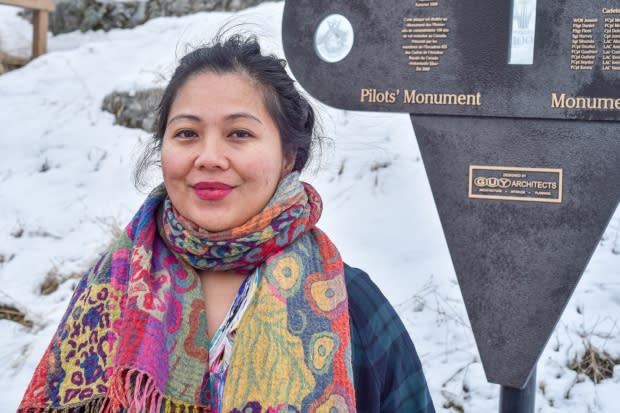OPINION | No more excuses for ignorance: N.W.T. needs accessibility legislation
The idea of creating barrier-free spaces was once novel to me. I was born able-bodied and had the privilege of entering into and out of spaces with little fuss or notice.
However, during the summer of 2016, I contracted a rare bacterial infection that caused my body to go into septic shock. The night everything happened, my partner was told to call my parents and tell them to rush to the hospital to say their goodbyes.
Luckily, my medical team was able to save my life — but at a cost. They pumped my body with medication to draw blood from my extremities to my vital organs and brain. It became apparent, as time passed, that my hands and feet were becoming increasingly necrotic and would have to be amputated.
After November 2016, I became a below-the-knee amputee, and in 2018, I became a partial hands amputee.
The surreal nature of how my body metamorphosed is only one part of what I have come to experience in my journey as a person with a disability. The other more tangible part is concerned with accessibility.

Inaccessible Old Town
When I first came to the North last year I was just a tourist, and I immediately became enamoured with this snowy expanse. Having lived in Toronto, the spaciousness I encountered in Yellowknife remedied my cramped lifestyle and I seized the opportunity to go on as many adventures as I could.
Now that I live here, and have prosthetic limbs, it has become apparent that people with disabilities face daily obstacles in Yellowknife.
The eclectic allure of the city's Old Town neighbourhood, for example, waned as I noticed how the icy steps and poorly maintained parking spots excluded persons with physical disabilities from entering businesses.
Similarly, the events that make Yellowknife distinctly "Yellowknife"— like the winter festivals held on a frozen lake — became less cool as I noticed how inaccessible they are.
The rights of people with disabilities will continue to take a backseat until accessibility legislation is enacted here in the Northwest Territories.
One may argue that business owners and event planners are doing their best. But how can they do their best when there are no benchmarks or standards to live up to? And if there are no timelines to work toward?
The rights of people with disabilities will continue to take a backseat until accessibility legislation is enacted here in the Northwest Territories.
The Accessible Canada Act, introduced in Parliament last year, aims to create more consistent accessibility in organizations under the federal government's responsibility, like the RCMP, the Senate and Crown corporations. But it's becoming more about rhetoric for change than an actual agent for change, so it is up to the individual provinces and territories to make Canada barrier-free.

Disability legislation
In the Northwest Territories, buildings must meet the requirements of the National Building Code. The territorial government told CBC it is updating its Good Building Practices for Northern Facilities, which has guidelines on accessible design for building developers.
But currently only three provinces have accessibility legislation in place: Ontario, Manitoba and Nova Scotia.
Accessibility legislation would provide clarity for everyone.
In Ontario, the goal of its disability legislation is to have the province be barrier free by 2025. It also sets standards for things like customer service, transportation, and the design of public spaces. How long will businesses in the N.W.T. continue to "try" without any real guidance, direction or accountability?
Accessibility legislation would provide clarity for everyone. It would also create awareness regarding the principles of universal design, which is the design of buildings, products or environments accessible to all people.
There would be no excuses then for benign ignorance, and individuals with disabilities would know their rights and be able to advocate for themselves.
Just like we enacted laws that require drivers wear seat belts, so must we evolve as a generation that will no longer set cruise control on the issues concerning accessibility and the people that need it.
This column is part of CBC's Opinion section. For more information about this section, please read this editor's blog and our FAQ.

